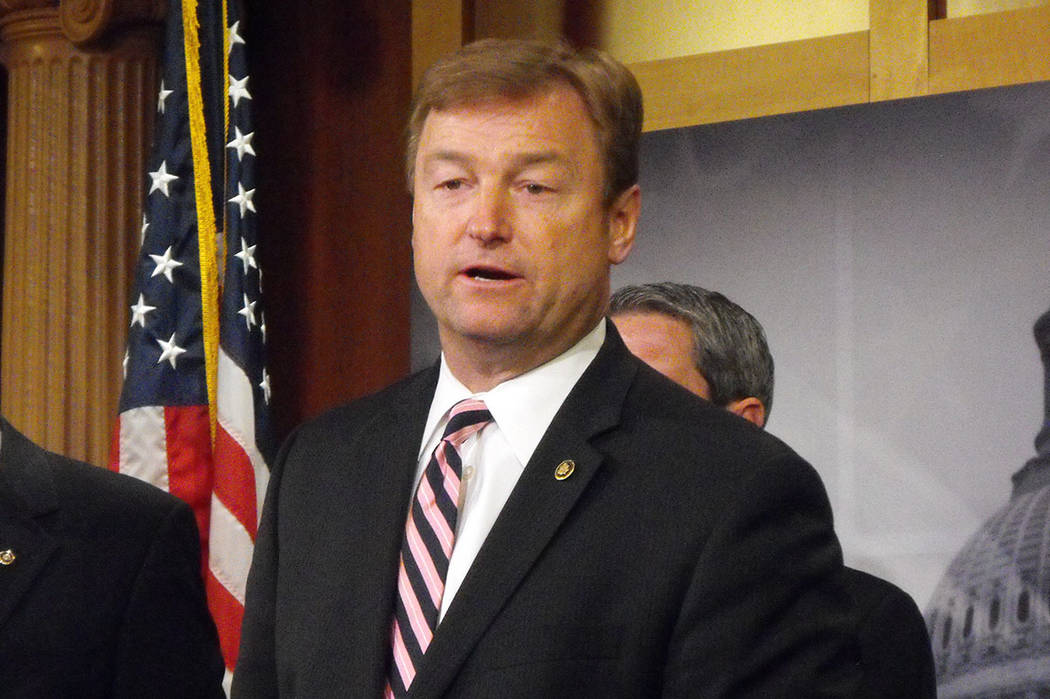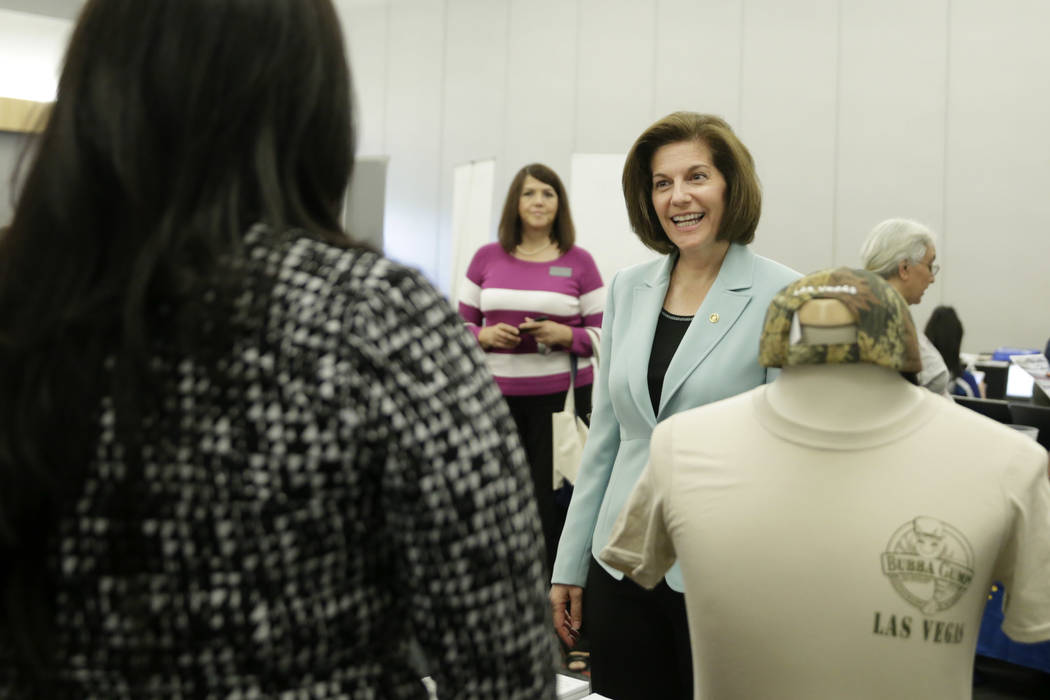Senate OKs sweeping reform of the GI bill


WASHINGTON — In one of its last acts before the August recess, the Senate passed a sweeping reform of the GI bill with bipartisan support — part of a legislative package for veterans that Republicans and Democrats were able to agree on.
The bill will improve education benefits for veterans, fixing flaws in the law passed in 2008 to address needs of veterans who served following the Sept. 11, 2001 attacks.
Sen. Dean Heller, R-Nev., and Sen. Catherine Cortez Masto, D-Nev., were co-sponsors of the legislation and joined colleagues in a voice vote late Thursday to pass the Harry W. Colmery Veteran Education Assistance Act of 2017, known as the Forever GI Bill.
“This is yet another positive development for Nevada’s veterans,” said Heller, a member of the Senate Veterans’ Affairs Committee.
Cortez Masto said the reform legislation creates “opportunities for veterans to pursue higher education, regardless of when they choose to do so in their careers.
Indeed, a key provision of the bill eliminates the 15-year use-it-or-lose-it clause in the original GI Bill, passed in 1944. to help veterans returning from World War II with education and mortgage benefits. The bill was updated in 2008 to address veterans of wars following the Sept. 11 terrorist attacks
The new bill restores lost credit from the closing of for-profit colleges and institutions.
There are currently more than 225,000 veterans living in Nevada, of which 21,000 are women and nearly half, or 120,000 veterans, are under age 65, according to the Department of Veterans Affairs.
The bill approved by the Senate was passed by the House with overwhelming, bipartisan support and is headed to President Donald Trump’s desk for a signature.
Heller added several amendments to the bill in the Veterans’ Affairs Committee to include expanded coverage for reservists and guardsmen, create a pilot program for computer programming, and specifically address benefits lost by the closure of ITT Technical Institute and other for-profit schools.
ITT Tech closed campuses in North Las Vegas and Henderson in 2016.
Cortez Masto, meanwhile, has co-sponsored legislation still before the Senate that would protect veterans and service members who are noncitizens from being deported.
The bills are sponsored by Sen. Tammy Duckworth, D-Ill., an Iraq War veteran, to prevent the deportation and provide legal permanent residents a path to citizenship through military service.
“These bills will help us honor our commitment to veterans and service members seeking U.S. citizenship,” Cortez Masto said.
The legislation expanding educational benefits is part of a veterans package that Congress took up in the waning weeks before its August recess.
While partisan acrimony has plagued the 115th Congress, lawmakers in both parties dropped their differences and agreed on veterans legislation.
Congress also approved legislation that provides a spending fix for veterans seeking medical care outside the Veterans Administration system.
Lawmakers also streamlined the appeals process to address a growing backlog of challenges by veterans seeking benefits.
Senate approval of both bills followed House passage last week, with bipartisan support, and will help Nevada veterans, according to Silver State lawmakers who were instrumental in pushing the bills through Congress.
The VA Choice fix, providing $2.1 billion in emergency funding, was sponsored by Heller to help veterans get medical care outside the VA health system.
“The program also allows veterans living in rural areas to receive care near their homes,” he said. “Without funding for the program, rural veterans, like those in Ely, Elko, Winnemucca and Tonopah would have to drive hundreds of miles to get care.”
The bill to streamline the VA appeal process also passed both chambers with bipartisan support.
There are currently more than 450,000 veterans, nationally, awaiting appeals. By year 2027, that backlog of appeals was expected to grow to 2 million.
Heller was a co-sponsor of the Senate bill, and Rep. Dina Titus, D-Nev., helped push the House version of the bill. Titus took up the charge when she served on the House Veterans’ Affairs Committee in the last session.
She applauded the bipartisan passage of the bill to streamline the appeals process.
“It is clear that Congress and the VA finally listened,” Titus said.
Contact Gary Martin at 202-662-7390 or gmartin@reviewjournal.com. Follow @garymartindc on Twitter.
The Forever GI Bill
— Removes the 15-year cap on the use of educational benefits, prevents predatory practices by for-profit schools, and reinstates GI bill benefits to defrauded veterans.
— Allows GI Bill recipients to use their benefit for coding schools or boot camps. This gives transitioning service members the opportunity to enter the tech sector shortly after leaving the service.
— Protects student veterans when institutions of higher education fail by restoring their lost benefits.
— Provides additional money for veterans pursuing science, technology, engineering, and math (STEM) degrees that require more than 128 semester credit hours for completion.
Source: Senate Veterans’ Affairs Committee












